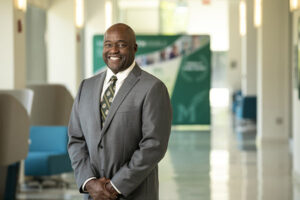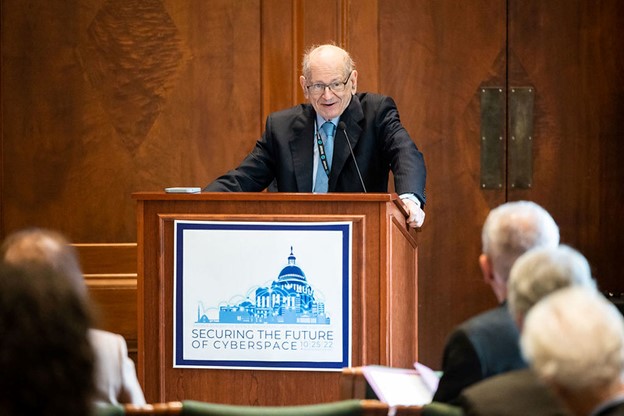President’s Message
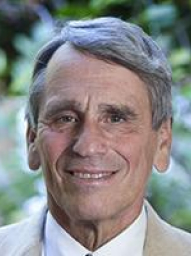 Dear friends,
Dear friends,
I hope that everyone has been enjoying the early spring and finding time to get outside and enjoy the spring colors. While we have much to report about the activities of the Virginia Academy and its members, we also have some sad news.
On March 10, Dr. William Wulf, passed away. Bill was NAE president from 1996 to 2007, a founder of the Virginia Academy, and the husband of our colleague, Anita Jones, a member of the Virginia Academy Board and, like Bill, a member of National Academy of Engineering.
A pioneering computer architect, Bill participated in the founding of computer science as a distinct discipline. During his years as the president of the NAE, he revived the organization and was a powerful advocate for engineering in public policy as well as for diversity in engineering. All who knew Bill mourn his absence.
This newsletter contains a short appreciation of Bill. It also includes several articles about honors our members have attained for accomplishments over long careers. Drs. Vint Cerf and Robert Kahn received the $3 million VinFuture Grand Prize for being founders of the Internet. This international award is given by the Vinfuture Foundation, an independent, not–for-profit organization established to recognize transformational technological innovations.
In addition, Vint received the 2022 IEEE Medal of Honor for co-creating the Internet architecture and providing sustained leadership in its growth, while Bob received the James Madison Award from Princeton University. This award is given annually to an alumnus for compiling a distinguished career, advancing the cause of graduate education, and achieving a record of outstanding public service.
Dr. Barbara Boyan, the executive director of the Institute for Engineering and Medicine at VCU, was recognized as one of the world’s top women scientists. She is known for her work in cell biology, biomedical engineering, and internal medicine.
In other news, we are pleased to welcome two outstanding individuals to our ranks, thanks to their election to the NAE. Dr. Gregory Washington, president of George Mason University, was honored for advancing technology at the interface of electromagnetics and materials and dedicated leadership and service in engineering education. Dr. Linsey Marr, the Charles P. Lunsford Professor of Civil and Environmental Engineering at Virginia Tech and a speaker at our 2017 summit on Emerging Infections and Preparedness, was cited for advancing fundamental knowledge of transport, removal, and mitigation of airborne pathogenic viruses. Her expertise was particularly sought after during the pandemic.
We are also proud of the support for possibly careers in public service we provide young scientist and engineers at the start of their careers. The Virginia Academy will be hosting its fourth cohort of Commonwealth of Virginia Engineering and Science (COVES) Graduate Policy fellows from May 22 through August 11, 2023. Twenty-two excellent applications were received for the 14 positions available. Seven universities are supporting fellows, and external funding is available from MITRE Corporation and Huntington Ingalls Industries to support fellows from Virginia State University and Norfolk State University.
We are also in the midst of planning for our 2023 Summit, Virginia Smart Communities, in Richmond on October 10, 2023.
This follows our last Summit, which was held in October at the National Academy of Sciences building in Washington, DC. The topic, Securing the Future of Cyberspace, allowed us to bring together numerous outstanding speakers from industry, academia, and government. The summit was particularly relevant in that Virginia has the largest cybersecurity workforce in the nation. It was organized on behalf of the Virginia Academy by the Commonwealth Cyber Initiative. A summit report will be released shortly.
As you can see, the Virginia Academy is flourishing. I hope that you find this newsletter informative and enjoyable. Please feel free to contact me if I can be of any assistance.
Sincerely,
James (Jim) H. Aylor
President,
Virginia Academy of Science, Engineering, and Medicine
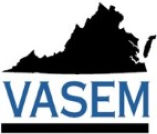
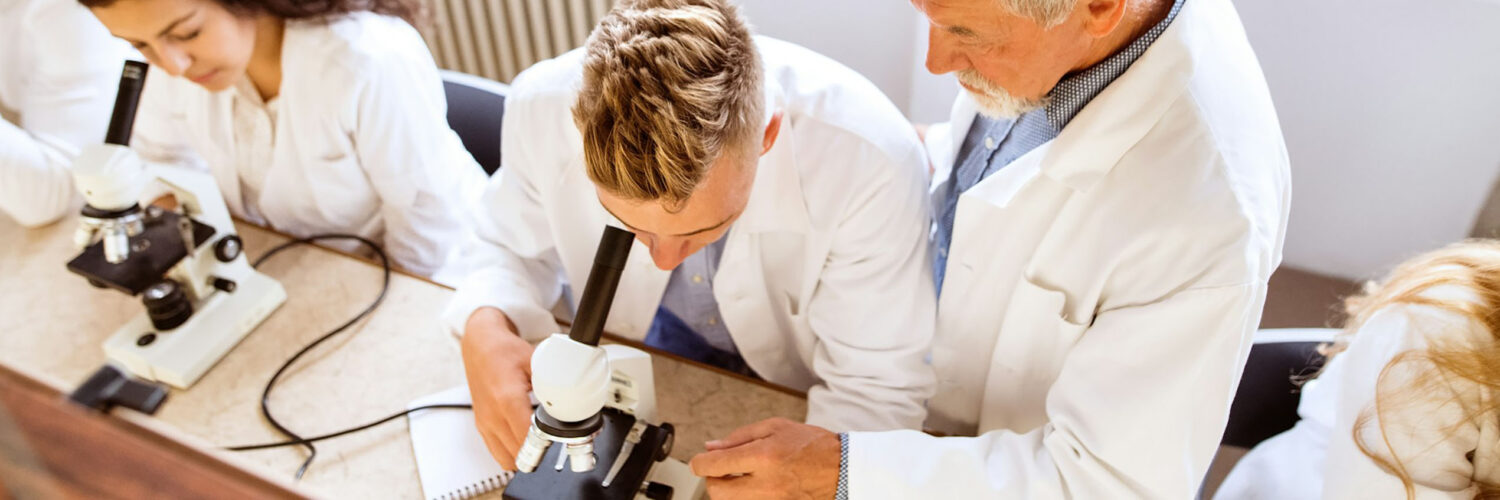
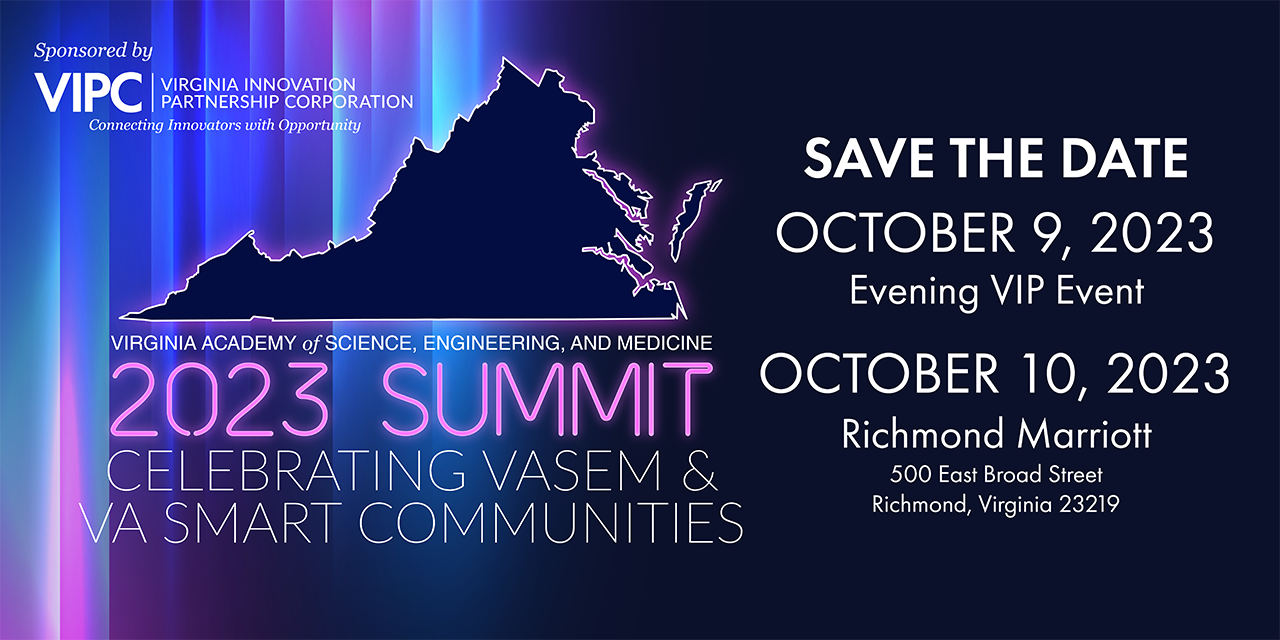


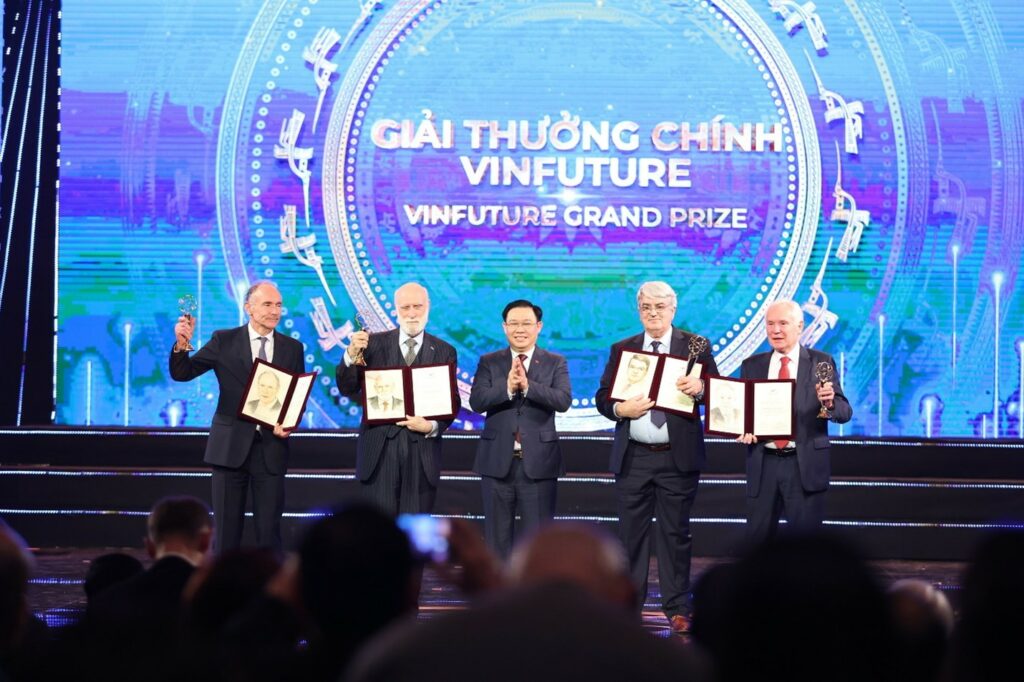




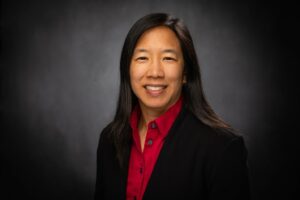 Dr. Linsey Marr is the Charles P. Lunsford Professor of Civil and Environmental Engineering at Virginia Tech. Her research group studies pollutants in indoor and outdoor air. She is especially interested in emerging or non-traditional aerosols such as microorganisms and engineered nanomaterials and how they are transformed in the environment. Prior to the pandemic, she was one of a small number of scientists who studied viruses in the air. Marr is a Fellow of the American Geophysical Union, American Association for Aerosol Research, and the International Society of Indoor Air Quality and Climate. She received a B.S. in Engineering Science from Harvard and a Ph.D. in Civil and Environmental Engineering from UC Berkeley and completed her post-doctoral training in Earth, Atmospheric, and Planetary Sciences at MIT.
Dr. Linsey Marr is the Charles P. Lunsford Professor of Civil and Environmental Engineering at Virginia Tech. Her research group studies pollutants in indoor and outdoor air. She is especially interested in emerging or non-traditional aerosols such as microorganisms and engineered nanomaterials and how they are transformed in the environment. Prior to the pandemic, she was one of a small number of scientists who studied viruses in the air. Marr is a Fellow of the American Geophysical Union, American Association for Aerosol Research, and the International Society of Indoor Air Quality and Climate. She received a B.S. in Engineering Science from Harvard and a Ph.D. in Civil and Environmental Engineering from UC Berkeley and completed her post-doctoral training in Earth, Atmospheric, and Planetary Sciences at MIT.